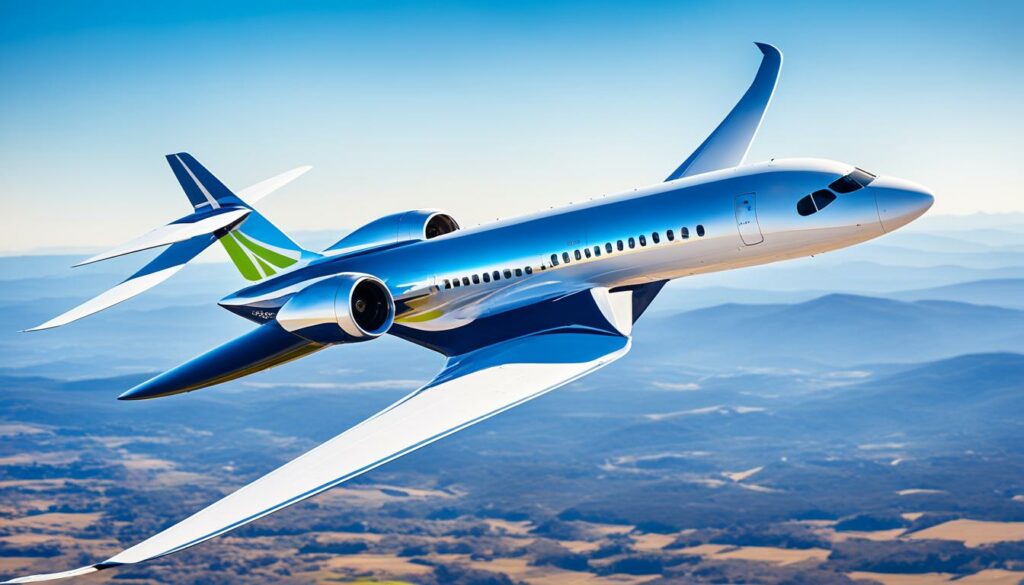The airline industry has undergone significant changes in recent years, making effective marketing strategies more crucial than ever for airlines to stay competitive. In this article, we will explore the top marketing strategies for airlines in 2024, covering tactics such as airline branding techniques, aviation advertising campaigns, airline digital marketing, and airline customer loyalty programs. These strategies are designed to elevate a brand, engage passengers, and boost loyalty in the evolving aviation landscape.
Key Takeaways:
- Marketing strategies are essential for airlines to succeed in the competitive airline industry.
- Airline branding techniques help create a strong and recognizable brand identity.
- Aviation advertising campaigns are effective in attracting new customers and increasing bookings.
- Airline digital marketing enables airlines to connect with passengers online and offer personalized experiences.
- Airline customer loyalty programs incentivize customers to choose a specific airline over competitors.
Understanding Airline Marketing and Its Importance
Airline marketing is a comprehensive business plan that aims to reach out to potential customers, gain more customers, and keep existing customers engaged. Airlines base their marketing strategies on their value proposition, which communicates to customers what the business is famous for and how well it performs. The overall objective of airline marketing is to gain a competitive advantage by understanding customer needs and adjusting strategies accordingly. With the changing traveler behavior and preferences, airlines must be creative and timely in their marketing efforts to stay ahead in the industry.
In order to effectively market their services, airlines employ various strategies that align with their value proposition and customer segmentation. These strategies involve understanding customer needs and wants, developing targeted campaigns, and creating a differentiated experience. By identifying and fulfilling customer needs, airlines can create value and establish a competitive advantage in the market.
One important aspect of airline marketing is defining a strong value proposition. A value proposition is the unique set of benefits and values that an airline offers to its customers. It answers the question, “Why should customers choose this airline over others?” A clear and compelling value proposition helps airlines stand out from the competition and attract the target audience.
To develop effective marketing strategies, airlines need a deep understanding of customer needs. This involves conducting market research and analyzing customer data to identify trends and preferences. By gaining insights into customer behavior, airlines can tailor their marketing efforts to meet specific needs, such as personalized offers, convenience, or affordability.
In today’s highly competitive airline industry, gaining a competitive advantage is crucial for long-term success. This can be achieved through various means, such as offering superior service, innovative products, competitive pricing, or exclusive partnerships. By differentiating themselves from competitors, airlines can attract more customers and build customer loyalty.
Customer-centric Approach
Successful airline marketing strategies revolve around putting the customer at the center of every decision. By understanding customer needs, wants, and pain points, airlines can develop targeted marketing campaigns that resonate with their target audience. A customer-centric approach allows airlines to create a more personalized and engaging experience, leading to greater customer satisfaction and loyalty.
For example, airlines can leverage customer data to send personalized offers and recommendations based on past travel behavior. By understanding customer preferences, airlines can provide tailored services and promotions that meet individual needs. This approach not only enhances the customer experience but also cultivates a sense of loyalty and preference for the airline.
Moreover, airlines should actively listen to customer feedback through various channels such as surveys, social media, and customer reviews. By addressing customer concerns and continuously improving their services, airlines can strengthen their competitive advantage and maintain a positive brand image.
Overall, airline marketing is a multifaceted discipline that requires a deep understanding of customer needs, effective value proposition, and a customer-centric approach. By implementing well-defined marketing strategies and adapting to changing trends, airlines can position themselves for success in the dynamic and competitive aviation industry.
Establishing Customer Loyalty through Loyalty Programs
Loyalty programs play a significant role in establishing customer loyalty for airlines. These programs offer customers various incentives to encourage them to book directly through the airline’s website and choose the airline over competitors. By leveraging loyalty programs, airlines can build a sense of loyalty and retain their customer base.
One of the key benefits of airline loyalty programs is the opportunity to offer price discounts. By providing exclusive discounts and sales to loyalty program members, airlines can incentivize customers to choose their airline for their travel needs. These price discounts not only attract new customers but also encourage existing customers to continue booking with the airline.
Airlines also utilize loyalty programs to reward frequent flyers with bonus miles. By earning bonus miles for each flight, customers can accumulate rewards that can be redeemed for free flights, upgrades, or other perks. This approach not only provides added value to customers but also enhances the overall travel experience, encouraging loyalty.
In addition to price discounts and bonus miles, airlines offer various customer incentives through their loyalty programs. These incentives can include priority boarding, access to exclusive lounges, free checked baggage allowances, and personalized services. By providing these extra benefits, airlines aim to enhance the customer experience and distinguish themselves from competitors.
To summarize, airline loyalty programs are instrumental in establishing and maintaining customer loyalty. By offering price discounts, bonus miles, and additional incentives, airlines can attract new customers, retain existing ones, and create a loyal customer base. These programs not only provide tangible benefits to customers but also contribute to an overall positive perception of the airline brand.
Harnessing the Power of Social Media
Social media has become an integral part of airline marketing strategies. Airlines can leverage various social media platforms to connect with passengers, promote their services, and gather valuable feedback. By implementing targeted social media campaigns, airlines can significantly enhance their online visibility, measure and manage their online reputation, and provide an exceptional flying experience for their customers.
Social media offers airlines a direct channel to engage with their target audience on a personal level. Platforms like Facebook, Twitter, Instagram, and LinkedIn allow airlines to share engaging content, such as travel inspiration, behind-the-scenes insights, and exclusive offers. By creating compelling and shareable posts, airlines can reach a wider audience and generate buzz around their brand.
One of the key advantages of social media is its ability to facilitate targeted advertising. Airlines can utilize sophisticated targeting options on platforms like Facebook and Instagram to tailor their ads to specific demographics, interests, and locations. This allows airlines to reach potential customers who are more likely to be interested in their services, resulting in higher click-through rates and increased conversions.
Additionally, social media platforms enable airlines to monitor and manage their online reputation in real-time. Airlines can proactively address customer concerns, resolve issues, and showcase positive customer experiences. By promptly responding to feedback and providing exceptional customer service, airlines can build trust and loyalty among their customers.
Social media platforms also offer valuable analytics tools that provide insights into audience engagement, reach, and demographics. By analyzing these metrics, airlines can refine their social media strategies and optimize their content to better resonate with their target audience.
Key Benefits of Harnessing the Power of Social Media:
- Increased online visibility and brand exposure
- Targeted advertising to reach specific customer segments
- Real-time monitoring and management of online reputation
- Opportunities for engagement and interaction with customers
- Access to valuable insights and analytics for data-driven decision making
To effectively harness the power of social media, airlines should develop a comprehensive social media strategy that aligns with their overall marketing goals. This includes creating compelling content, engaging with followers, utilizing targeted advertising, and constantly monitoring and analyzing performance metrics.
Collaborating with Metasearch Engines
Working with metasearch engines is a critical component of airline marketing. Metasearch engines allow travelers to search and compare flights from thousands of airlines, providing them with a one-stop solution for finding the best fares. By collaborating with metasearch engines, airlines can increase the visibility of their fares on the global market, reaching a wider audience and attracting more customers.
One notable metasearch engine that has become a prominent platform for airlines is Google. With its no-fee direct booking option, airlines can easily increase sales and streamline the booking process for customers. This collaboration not only benefits airlines by driving traffic to their websites but also provides a convenient and user-friendly experience for travelers.
By leveraging airline collaborations with metasearch engines, airlines can enhance their visibility on the global market, allowing them to tap into new customer segments and expand their reach. This increased visibility brings a multitude of advantages, including:
- Increased brand exposure
- Access to a wider audience
- Boosted sales and revenue
- Improved customer acquisition
In a highly competitive airline industry, collaborating with metasearch engines is an effective way for airlines to stand out from the crowd and maximize their marketing efforts. By utilizing these platforms, airlines can reach more potential customers, increase their market share, and solidify their position in the global market.
Promoting Low-Cost Destinations
Low-cost airlines, such as Ryanair, are a popular choice among budget-conscious leisure travelers who seek the lowest fares. These airlines have adopted a unique approach to promoting their services by focusing on specific tourist attractions and budget routes. Instead of highlighting their own offerings directly, they utilize platforms like their blog to provide useful information about affordable destinations, thereby attracting more customers and generating increased bookings for these low-cost routes.
By showcasing specific tourist attractions and providing valuable insights, low-cost airlines captivate the attention of travelers who are looking for affordable travel options. This approach allows airlines like Ryanair to leverage the popularity of these attractions to attract more passengers and generate higher revenue.
Here is an example of how Ryanair promotes tourist attractions:
| Tourist Attraction | Location | Description |
|---|---|---|
| Colosseum | Rome, Italy | The Colosseum is an ancient amphitheater renowned for its historical significance and architectural grandeur. Visitors can explore the ruins and learn about the captivating stories behind this iconic landmark. |
| Eiffel Tower | Paris, France | The Eiffel Tower stands as a symbol of Paris and offers breathtaking views of the city. Visitors can ascend to the top and enjoy panoramic vistas, or dine at one of the on-site restaurants for a memorable experience. |
| Sagrada Familia | Barcelona, Spain | The Sagrada Familia is a magnificent basilica designed by the renowned architect Antoni Gaudí. Its intricate details and impressive architecture make it a must-visit attraction for tourists in Barcelona. |
By promoting these specific tourist attractions, low-cost airlines not only provide valuable travel information but also encourage travelers to choose their airline to access these budget-friendly destinations.
Enhancing the In-Flight Experience
Airlines can enhance their in-flight experience by offering advanced in-flight entertainment systems. These systems can include in-seat systems that stream movies, series, songs, and games, giving passengers a personalized and entertaining experience. By integrating these perks into their marketing schemes, airlines can differentiate themselves from competitors and encourage more passengers to choose their airline.
Additionally, other methods such as adding new destinations, upgrading facilities, and providing exceptional customer service contribute to keeping customers coming back. These personalized services not only enhance the overall flying experience but also give airlines a competitive advantage in the industry.
Benefits of In-Flight Entertainment Systems and Personalized Services:
- Passengers can enjoy a wide range of entertainment options, including movies, TV shows, music, and games, making their journey more enjoyable and relaxing.
- Customized playlists and recommendations based on passengers’ preferences allow for a tailored entertainment experience.
- Personalized services such as special meal requests, dedicated seating preferences, and exclusive amenities give passengers a sense of importance and satisfaction.
- In-flight Wi-Fi connectivity offers passengers the convenience of staying connected during their flight, allowing them to work, browse the internet, or connect with loved ones.
- The provision of additional services like on-demand shopping, duty-free catalog browsing, and personalized destination recommendations enhances the overall travel experience.
These innovative in-flight entertainment systems and personalized services provide airlines with a competitive advantage by attracting more customers and fostering customer loyalty. By continually improving and enhancing the in-flight experience, airlines can create a unique brand identity and solidify their position in the market.
Comparison of In-Flight Entertainment Systems
| Airline | In-Seat Entertainment | Streaming Options | Wi-Fi Availability |
|---|---|---|---|
| Delta Airlines | Yes | Movies, TV shows, music, games | Yes |
| Emirates | Yes | Movies, TV shows, music | Yes |
| Singapore Airlines | Yes | Movies, TV shows, music | Yes |
| United Airlines | Yes | Movies, TV shows, games | Yes |
Embracing Sustainability Initiatives
Sustainability is a top priority for airlines in 2024 as they strive to reduce their carbon footprint and contribute to a more sustainable aviation industry.
Many airlines are investing in more fuel-efficient aircraft and exploring the use of electric and hybrid planes. These initiatives aim to revolutionize air travel by offering quieter and cleaner flights while also reducing fuel costs and harmful emissions.
By adopting sustainable practices, airlines can align themselves with the expectations of environmentally conscious travelers and demonstrate their commitment to preserving the planet.
Benefits of Sustainable Aviation:
Embracing sustainability initiatives in aviation brings several benefits:
- Reduced carbon emissions: Fuel-efficient aircraft and electric/hybrid planes significantly reduce greenhouse gas emissions, helping to mitigate climate change.
- Environmental preservation: By minimizing noise pollution and reducing air and water pollution, sustainable aviation ensures the preservation of natural habitats.
- Lower operating costs: Fuel-efficient aircraft consume less fuel, which leads to cost savings for airlines.
- Enhanced reputation: Airlines that prioritize sustainability can build a positive brand image and attract environmentally conscious travelers.
Overall, sustainable aviation initiatives are crucial for the long-term viability of the industry and for meeting the growing demand for eco-friendly travel options.

Examples of Sustainable Aviation Initiatives:
Several airlines have made significant progress in adopting sustainable practices and investing in sustainable aviation:
| Airline | Sustainability Initiatives |
|---|---|
| United Airlines | Investing in electric ground vehicles and exploring the use of sustainable aviation fuel. |
| EasyJet | Commitment to operating net-zero carbon flights by using electric and hybrid planes. |
| KLM Royal Dutch Airlines | Investing in sustainable aviation fuel and implementing recycling programs. |
| Qantas | Developing a project to operate the world’s first fully sustainable aviation flight. |
These examples demonstrate the industry’s commitment to sustainability and the progress being made towards a greener future for aviation.
By embracing sustainable aviation practices and investing in fuel-efficient and electric/hybrid aircraft, airlines can lead the way in creating a more eco-friendly and responsible industry.
Leveraging Data and AI for Personalized Services
Airlines are harnessing the power of data-driven services and artificial intelligence (AI) to offer personalized experiences to their passengers. By leveraging vast amounts of data and AI algorithms, airlines can deliver customized travel recommendations, tailored to individual preferences and past behaviors. From seat preferences to meal options, passengers can expect a highly personalized journey that caters to their specific needs.
Data-driven services enable airlines to analyze passenger data and gain valuable insights into their preferences, travel habits, and purchase behaviors. This data-driven approach allows airlines to offer personalized recommendations, improving the overall customer experience and increasing passenger satisfaction.
Enhancing Passenger Experience with Personalized Recommendations
With access to passenger data, airlines can provide personalized flight recommendations based on individual preferences. For example, frequent flyers who prefer quick and efficient journeys may receive recommendations for flights with shorter layovers or direct routes. On the other hand, passengers who value in-flight entertainment and premium services may be offered flights with advanced entertainment systems and luxurious amenities.
This level of personalization not only creates a more enjoyable travel experience for passengers but also enhances customer loyalty and encourages repeat bookings. By tailoring their services to each passenger’s preferences, airlines can build lasting relationships and gain a competitive edge in the market.
Ensuring Efficient Operations with Predictive Maintenance
Predictive maintenance, powered by AI, is revolutionizing the way airlines manage their fleet. By analyzing data from various sensors and systems on board aircraft, predictive maintenance algorithms can accurately predict maintenance needs and identify potential issues before they occur. This proactive approach helps airlines ensure that their planes are in top condition, reducing the risk of unexpected technical problems and flight delays.
Through predictive maintenance, airlines can schedule maintenance activities more efficiently, minimizing downtime and maximizing aircraft availability. This not only improves operational efficiency but also enhances passenger satisfaction by reducing the likelihood of flight disruptions due to maintenance issues.
Unlocking New Revenue Streams and Competitive Differentiation
By leveraging data and AI, airlines can not only improve the passenger experience but also unlock new revenue streams. Personalized recommendations can include ancillary services such as pre-selected seats, upgrades, and special offers tailored to individual preferences. These targeted offers increase the likelihood of passengers choosing additional services, generating additional revenue for the airline.
Furthermore, airlines that successfully implement data-driven services and personalized recommendations can differentiate themselves from competitors. By providing highly tailored experiences, airlines can stand out in a crowded market, attracting new customers and retaining existing ones. This competitive advantage is essential for airlines seeking long-term success in the ever-evolving aviation industry.
| Benefits of Leveraging Data and AI for Personalized Services: |
|---|
| Enhanced passenger experience through personalized recommendations |
| Improved operational efficiency with predictive maintenance |
| Unlocking new revenue streams through targeted ancillary services |
| Competitive differentiation in the aviation industry |
Conclusion
In conclusion, effective marketing strategies play a pivotal role in the success of airlines within the highly competitive aviation industry. By employing various tactics such as airline branding techniques, aviation advertising campaigns, airline digital marketing, and airline customer loyalty programs, airlines can elevate their brand recognition, actively engage with passengers, and cultivate long-lasting customer loyalty. These strategies not only contribute to short-term gains but also pave the way for long-term success in the ever-evolving aviation landscape.
Furthermore, embracing sustainability initiatives and leveraging the power of data and artificial intelligence (AI) are crucial in driving future growth and ensuring a sustainable aviation industry. By adopting fuel-efficient aircraft, investing in electric and hybrid planes, and implementing data-driven services, airlines can align themselves with the expectations of environmentally conscious travelers and deliver personalized experiences that cater to individual preferences. This strategic approach to marketing enables airlines to differentiate themselves from competitors and create a competitive advantage that leads to sustained success.
With the right foundation in place and a keen focus on understanding and meeting customer needs, airlines are well-positioned to thrive in 2024 and beyond. By consistently refining their marketing strategies and embracing new technologies and initiatives, airlines can navigate the challenges of the aviation industry, foster customer loyalty, and achieve long-term success.
FAQ
What is airline marketing and why is it important?
Airline marketing is a comprehensive business plan that aims to reach out to potential customers, gain more customers, and keep existing customers engaged. It is important for airlines because it helps them understand customer needs, gain a competitive advantage, and adjust strategies accordingly.
How do loyalty programs help in establishing customer loyalty for airlines?
Loyalty programs incentivize customers to book tickets directly through the airline’s website by offering price discounts, bonus miles, and other perks. These programs help airlines attract and retain customers and create a sense of loyalty among their customer base.
How can social media be used in airline marketing strategies?
Social media platforms can be used by airlines to connect with passengers, promote services, and collect feedback. By implementing social media campaigns, airlines can increase their online visibility, measure their online reputation, and provide a better flying experience for their customers.
How can airlines collaborate with metasearch engines in their marketing efforts?
Airlines can collaborate with metasearch engines to increase the visibility of their fares on the global market. By working with these platforms, airlines can reach a wider audience and attract more customers.
How do low-cost airlines promote their services?
Low-cost airlines often promote specific tourist attractions and budget routes through their blogs and other platforms. By providing useful information and showcasing affordable destinations, these airlines can attract more customers and increase bookings for these low-cost destinations.
How can airlines enhance the in-flight experience for passengers?
Airlines can enhance the in-flight experience by offering advanced in-flight entertainment systems, such as in-seat systems that stream movies, series, songs, and games. These perks provide passengers with a personalized and entertaining experience, differentiating the airline from competitors.
What sustainability initiatives are airlines adopting?
Many airlines are investing in more fuel-efficient aircraft and exploring electric and hybrid planes to reduce their carbon footprint. These initiatives aim to offer quieter and cleaner flights while reducing fuel costs and harmful emissions, aligning with the expectations of environmentally conscious travelers.
How are airlines leveraging data and AI for personalized services?
Airlines are using data and AI to offer personalized services, including customized travel recommendations based on passenger preferences and past behaviors. Predictive maintenance powered by AI helps airlines ensure planes are in top condition and reduce flight delays, enhancing the overall customer experience.
What is the importance of effective marketing strategies for airlines?
Effective marketing strategies are crucial for airlines to succeed in the competitive aviation industry. These strategies help elevate the brand, engage passengers, and boost loyalty. By understanding customer needs and implementing the right marketing strategies, airlines can thrive in 2024 and beyond.







